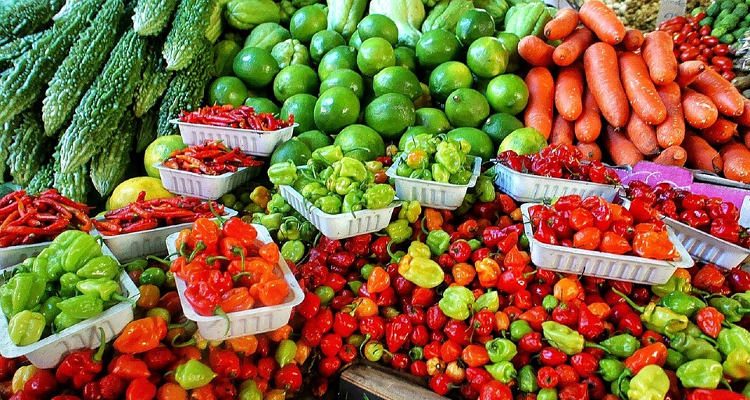
An often heard word when people discuss or mention their eating or dietary preferences is the term “vegan.” And, some say they only consume a plant-based diet. While they may seem similar, there are some subtle differences between the two. We are going to make a comparison of a plant-based diet vs. vegan to see if they are the same or different.
Read on to know more about these diets so that you will be able to identify the types of food in each of these dietary choices.
Difference between Plant-Based Diet and Vegan Diet
If you think that a plant-based diet and vegan diet are the same, then you are wrong. Don’t worry, you are not alone. In fact, there are many people who consider them to be the same and even use these terms interchangeably. People seem to get confused between a plant-based diet and a vegan diet. And, a few them even think that vegan is just another word for a plant-based diet.
According to The Vegan Society, “Veganism is a way of living which seeks to exclude, as far as is possible and practicable, all forms of exploitation of, and cruelty to, animals for food, clothing, or any other purpose.”
So, being a vegan is not just what you eat, but in fact, a lifestyle which you adopt. A vegan avoids anything that has an animal source like honey, eggs, milk, silk, wool, and more. A vegan diet, on the other hand, is completely free from animal exploitation.
Since vegans only have access to plant proteins, they can miss out on essential amino acids. To overcome this issue, a vegan would need to make a combination of pulses using beans, chickpeas, and grains. This combination should be included in different meals.
Baked beans on toast, rice with pulses, or lentils with bread could be a good combo. Regular inclusion of beans, chickpeas, lentils, and nuts in the diet can help to overcome most of the nutritional deficiencies that vegan people face.
Furthermore, vitamin B12 is found only in animal products. So, vegans are recommended to take a vitamin B12 supplement.
A plant-based diet is favored among nutritionists and celebrities. Eggs, milk, honey, and other animal products are allowed in a plant-based diet, so it is not solely a plant-only diet.
Why a Plant-Based Diet Is Healthier Than Vegan Diet
There is an overlap between a plant-based diet and a vegan diet. But overall, a plant-based diet is easier and flexible.
It is even considered to be a healthier option that focuses on nutrient-dense foods rather than processed food. Also, since dairy products and eggs are part of this diet, the issue related to the lack of complete proteins or vitamin B12 is much less.
So, there is a huge difference between a plant-based diet and vegan diet. And, going vegan is not the same as adopting a plant-based diet.
Plant-Based Diet vs. Vegan Diet: Food List
A typical list of food items under each category are noted in the table below.
| Vegan Food Items | Plant-Based Food Items |
| Some vegan foods that are high in protein include soybeans, soy-based meat substitutes, soy milk, tofu, black beans, chickpeas, lentils, almonds, peanut butter, other nuts and seeds, and whole grain products. | Best protein sources in a plant-based diet include beans and legumes, nuts, seeds, and high-protein whole grains such as quinoa. A limited use of eggs and dairy is allowed. |
| Calcium sources include spinach, kale, broccoli, collard greens, blackstrap molasses, and calcium-fortified products like soy milk, tofu, cereals, and juices. | Dark leafy greens, beans, nuts, seeds, tofu (calcium set), and dairy (minimal use) are a good source of calcium. |
| For iron, they consume dried fruits, dried beans and peas, dark leafy green vegetables, whole grains, and enriched cereals. In addition to eating these foods, vegans can enhance the absorption of iron by also consuming foods high in vitamin C, such as citrus fruits and tomatoes, | For iron, dark leafy green vegetables, whole grains, and enriched cereals are consumed, as well as vitamin C foods for its absorption. |
| Vitamin B12 sources include fortified cereals or fortified soy milk. Vegans may also take a vitamin B12 supplement. | In addition to fortified cereals, dairy and eggs are the sources of vitamin B12, although minimally used. |
| For omega-3 fatty acids, flaxseed oil, flaxseeds, walnuts, canola oil, and soybeans are consumed. | For omega-3 fatty acids, flax, hemp, walnuts, green leafy vegetables, and algae supplements can be eaten in appropriate quantities. |
The Final Word on Plant-Based Diet Vs. Vegan
The plant-based diet focuses on eating healthy and is more inclined towards eating whole grains, pulses, and sprouts. Since other plant-based products like soy milk and plant-based items do not supply all the essential proteins, plant-based diet followers eat a lot of sprouts and pulses to reach the daily required amount of proteins.
Vegans, on the other hand, prefer foods like fruits, vegetables, grains, beans, nuts, and seeds.
Sources:
“List of Foods That Vegans Eat,” SFGate; http://healthyeating.sfgate.com/list-foods-vegans-eat-3763.html, last accessed August 7, 2017.
Andrews, R., “All About Plant-Based Diets,” Precision Nutrition; http://www.precisionnutrition.com/all-about-pbd, last accessed August 7, 2017.
Block, E., “Why Going Vegan Is Not the Same as Eating a Plant-Based Diet – Who Knew?” Byrdie; http://www.byrdie.co.uk/plant-based-vs-vegan, last accessed August 7, 2017.













